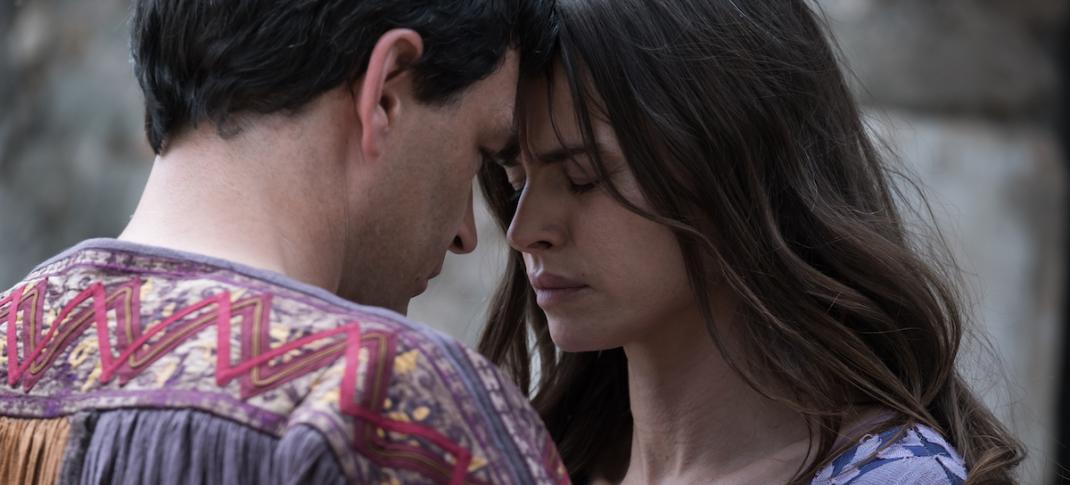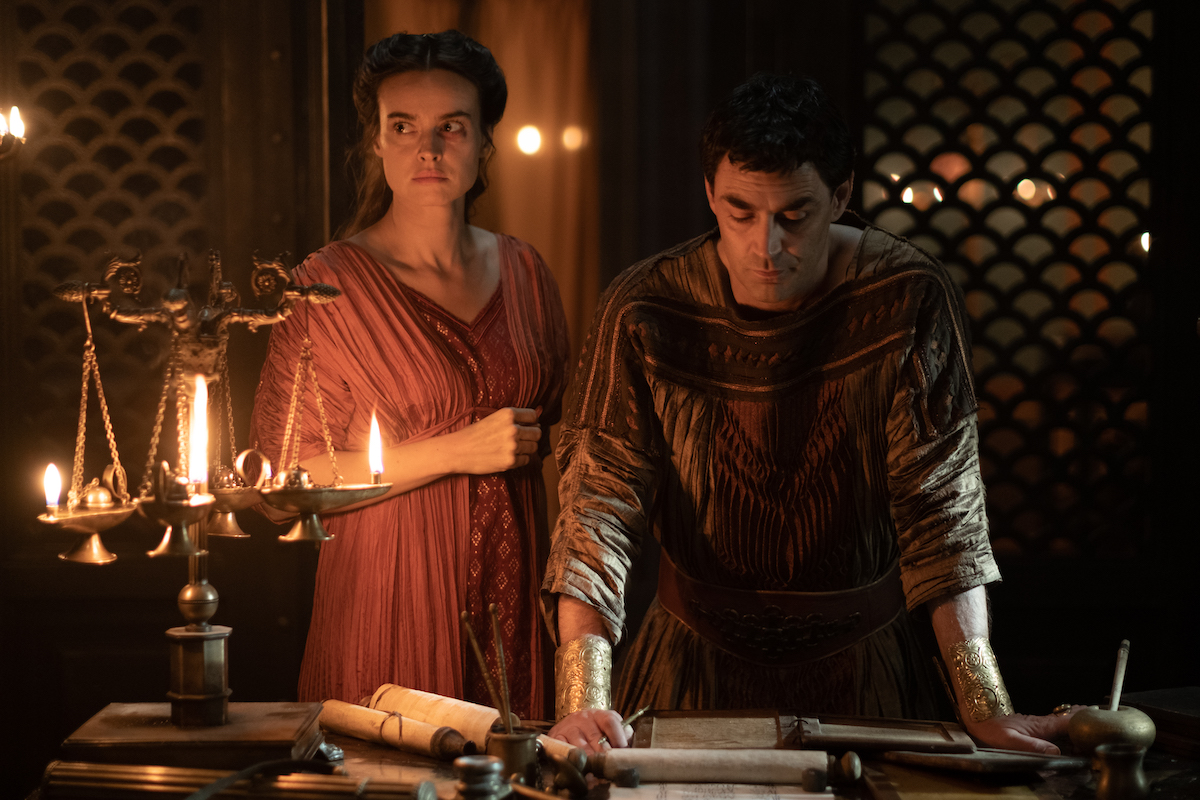'Domina' Season 2 is an Improved Foray into the Instability of Rome’s Imperialism

Kasia Smutniak and Matthew McNulty in "Domina" Season 2
(Photo: MGM+)
The most satisfying thing about Domina is whenever something gloriously trashy and scandalous happens — a murder, a conspiracy to marry off a relative, or if we’re lucky, a second murder — Wikipedia is right there to confirm that crazy thing happened during the Roman empire. It might not have happened quite the way Domina’s sophomore season shows. But Season 2 brings a confident and improved foray into the instability of Rome’s early imperial days. As we’re unlikely to know what it was like in the days before Jesus shook up the calendar, it’s fun to indulge in dramatic reinterpretation to color those distant stretches of history with the lifeblood of great historical fiction: blood, love, and vices.
Domina’s debut season only gathered momentum in fits and starts but still generated enough goodwill to set us up for more precarious and treacherous Roman intrigue. Livia Druscilla (Kasia Smutniak), wife to Caesar Augustus (Matthew McNulty) and Rome’s first empress, has been painted as a power-hungry, downright evil character in historical fiction past, and creator Simon Burke set out to humanize not just Livia, but all women sidelined in the stories told of the Roman aristocracy.
Upon Julius Caesar’s assassination, Rome was engulfed in civil war, and Livia’s father picked the wrong side to fight for. When her father committed suicide, Livia was forced into exile — only by marrying the leader that defeated her father, Gaius (this is the actual name of Augustus – Roman names were complicated) can she be reaccepted into society, now with two young boys and an entrenched fear that her position is under threat from anyone around her.
Over the course of the first season, she marries off her children, consolidates her own legitimacy in the eyes of her husband, and assassinates Gaius’ nephew Marcellus, which sets Gaius’ sister Octavia (Claire Forlani) off on a vengeful collision course with our Domina. There’s a lot of history to catch up on, as well as a lot of complicated family dynamics in Gaius’ family, but between the first and second seasons, Burke has simplified the narratives, emboldened the character drama, and focused the themes to a fine point, making Domina Season 2 a well-plotted, compelling, and awfully fun descent into the chaos that built Rome.
Three years have passed since Season 1’s finale, and Rome has been without Gaius and Livia for three years. They return to a politically weak city-state marred by famine, and despite getting arrested and almost sold to slavery within a day of her return, Livia wastes little time regrouping her agents and supporters amongst a nest of vipers — namely, the ever-simmering Octavia.
Our primary villain for the season, apart from Livia’s own ambition, is Domitius (David Avery), a corrupt aristocrat capable of as much scheming as Livia. He’s characterized with more of the calculated machiavellianism that audiences will associate Livia with from landmark BBC series I, Claudius. After the Livia v Octavia rivalry is brought to a head at the season’s midpoint, Domitius, in all his smirking coldness, rises as the real obstacle towards Livia solidifying her legacy, and Avery shoulders the responsibility admirably.
Domina gained narrative confidence but also picked up a couple of quirks of recent televisual historical fiction, another victim to the last decade’s Game of Thrones-ification of the genre. Kinky sex, constant cursing, and psychopathy shorthands are in abundance, and even if Domina owes more to Westeros’ precursor, HBO’s Rome, the insistence of grit gets in the way of good character work. It’s most notable in the season’s MVP, the booming military commander brother of Gaius, Agrippa (Ben Batt), who graduates from a fiery side character to one of the most winning and complex characters in the second. He’d be so much better, however, if he didn’t say “fuck” every other line.
Ultimately, Domina pitches itself as a redressal of the limited role women have had in previous Ancient Roman dramas, and it’s not just with Livia can we feel the show offering rebuttal to yesterday’s narratives. Gaius’ only biological child, Julia (Liah O’Prey), is probably most known in pop culture as the subject of I, Claudius’ Augustus (Brian Blessed), having a rant about her relentless promiscuity. Domina offers that sex and other libations are some of the sole reliefs offered to aristocratic women, especially in the face of grief, trauma, and constant undermining of their autonomy, a sympathetic and moving portrayal of a Julia desperate for a life worth living to the fullest.
It’s not the most sophisticated royal court drama and a pivot to infighting between Livia’s sons (Drusus and Tiberius) in the last three episodes can’t escape feeling like a cumbersome and sudden shift. However, Domina finds room to breathe in its second season and makes it plain to the audience that Roman drama still has mileage left in the tank. Season 2 teems with the cruelty and pathos that makes this empire so endlessly appealing as if the people crucial to its foundation were always acutely aware that decline and fall could be just around the corner for any of them.
Domina Season 2 debuts on MGM+ on Sunday, July 9, 2023, with two episodes, with one a week to follow. Season 1 is streaming on MGM+.





